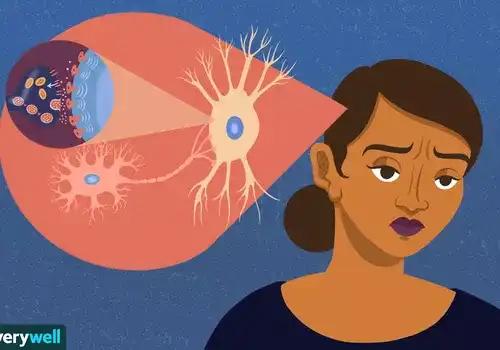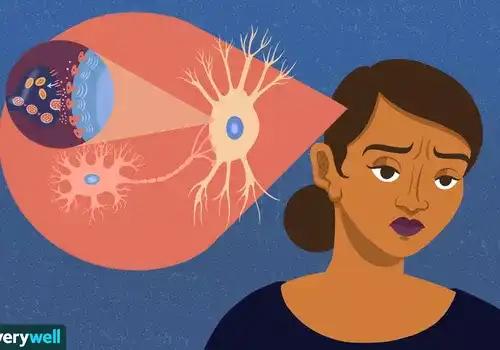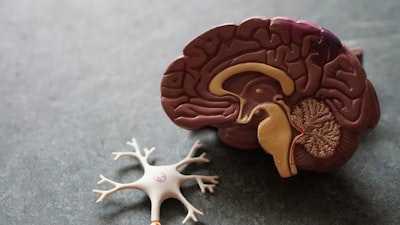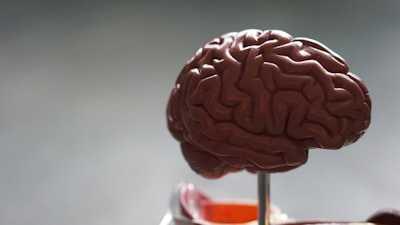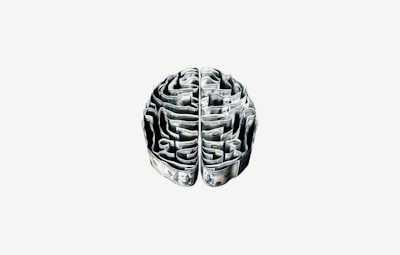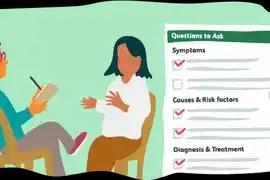Explore the World's Best Ideas
Join today and uncover 100+ curated journeys from 50+ topics. Unlock access to our mobile app with extensive features.
The Chemistry of Depression
Accepting how little we truly know about the chemistry of depression can help us maintain perspective and expectations for the medications used to treat depression.
For people who are trying to find the right treatment, understanding the complex chemistry can be reassuring when a particular drug doesn't work for them or if they need to try more than one antidepressant.
90
589 reads
Neurotransmitters
Neurotransmitters are chemical messengers in the brain. The nerve cells of the brain use neurotransmitters to communicate with each other. The messages they send are believed to play a role in mood regulation.
The three neurotransmitters implicated in depression are:
- Dopamine
- Norepinephrine
- Serotonin.
88
447 reads
Dopamine
Dopamine is a neurotransmitter that creates positive feelings associated with reward or reinforcement that motivate us to continue with a task or activity. There is evidence that reduced dopamine levels can contribute to depression in some people.
Dopamine is believed to play an important role in a variety of conditions affecting the brain, including Parkinson's and schizophrenia.
102
710 reads
Norepinephrine
Norepinephrine is both a neurotransmitter and a hormone. It plays a role in the "fight or flight response" along with adrenaline. It helps send messages from one nerve cell to the next.
Changes in norepinephrine levels do not affect mood in every person. Researchers now understand that having too little norepinephrine isn't the only chemical cause of depression.
92
396 reads
Serotonin
Serotonin is considered to be the "feel good" chemical in the brain. In addition to helping regulate your mood, serotonin has a number of different jobs throughout the body from your gut to blood clotting to sexual function.
91
459 reads
Causes of Low Neurotransmitter Levels
Research has indicated several potential causes for the low levels of serotonin, norepinephrine, or dopamine:
- Molecules that help make neurotransmitters are in short supply
- Not enough receptor sites to receive the neurotransmitter
- Presynaptic cells are taking the neurotransmitter back up before it has a chance to reach the receptor cell
- Too few of the molecules that build neurotransmitters (chemical precursors)
- Too little of a specific neurotransmitter (for example, serotonin) is being produced
85
334 reads
Current and Future Depression Treatments
While psychotherapy is helpful for some people with depression, if there is a chemical imbalance in the brain, it may not be enough to address their symptoms. Antidepressants combined with psychotherapy proves especially effective for addressing the symptoms.
While taking an antidepressant medication might help with the symptoms, it doesn't necessarily address the cause of the low levels. In this situation, therapy to improve stress management and reduce stress could potentially be helpful.
88
360 reads
IDEAS CURATED BY
Claudia Florescu's ideas are part of this journey:
Learn more about health with this collection
Cultivating self-awareness and self-reflection
Prioritizing and setting boundaries for self-care
Practicing mindfulness and presence
Related collections
Similar ideas
3 ideas
What Is Serotonin and How Does It Regulate Bodily Functions?
verywellmind.com
10 ideas
7 ideas
Is everything you think you know about depression wrong?
theguardian.com
Read & Learn
20x Faster
without
deepstash
with
deepstash
with
deepstash
Personalized microlearning
—
100+ Learning Journeys
—
Access to 200,000+ ideas
—
Access to the mobile app
—
Unlimited idea saving
—
—
Unlimited history
—
—
Unlimited listening to ideas
—
—
Downloading & offline access
—
—
Supercharge your mind with one idea per day
Enter your email and spend 1 minute every day to learn something new.
I agree to receive email updates
